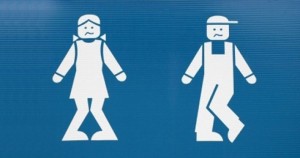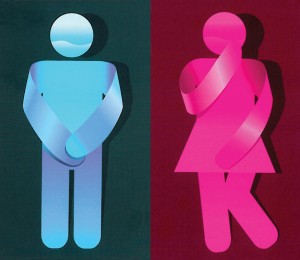 One of the purposes of writing a column like this is that I can answer questions you would never in a million years want to ask your health care provider – it saves you the embarrassment and you get some information that you or a loved one might just find handy, if not today, then some day in the future. So, let’s get right to the heart of the matter: one of the worst things that can happen to a grown person is to wet their pants, right? We think of little kids doing it, or maybe wetting the bed, but it’s much harder to deal with when we’re talking about adults. The fact of the matter is, as we age or develop certain health conditions, the bladder doesn’t always work quite the way we would like it to. The commercials we see on TV mostly show some poor woman hoping to regain her “poise” with the use of some disposable undergarment. Sorry to say, it happens to men also (not as often, and I haven’t seen commercials about it yet, but it does happen). The inability to control leakage of urine is called urinary incontinence.
One of the purposes of writing a column like this is that I can answer questions you would never in a million years want to ask your health care provider – it saves you the embarrassment and you get some information that you or a loved one might just find handy, if not today, then some day in the future. So, let’s get right to the heart of the matter: one of the worst things that can happen to a grown person is to wet their pants, right? We think of little kids doing it, or maybe wetting the bed, but it’s much harder to deal with when we’re talking about adults. The fact of the matter is, as we age or develop certain health conditions, the bladder doesn’t always work quite the way we would like it to. The commercials we see on TV mostly show some poor woman hoping to regain her “poise” with the use of some disposable undergarment. Sorry to say, it happens to men also (not as often, and I haven’t seen commercials about it yet, but it does happen). The inability to control leakage of urine is called urinary incontinence.
There are three types of urinary incontinence: stress incontinence, urge incontinence and mixed incontinence. Stress incontinence occurs when the main muscles that help to control the flow of urine, called the sphincter and detrusor, are weak and can’t contract enough to keep the urine in the bladder. Any exercise or movement that puts additional stress or pressure on the bladder, like laughing, sneezing, coughing or doing exercise, can cause the leakage of urine. Urge incontinence occurs when the two muscles of the bladder and the nerves don’t work together in harmony. When there is bladder irritation or “overactive” bladder, the detrusor, the muscle that contracts the bladder, is working overtime and causes you to urinate even when your bladder isn’t that full. Sometimes you just find yourself having to go frequently, sometimes uncontrollably. This can be worsened by the sound of running water or feeling water. Mixed incontinence is just what it sounds like – a combination of the two types of incontinence.
 What can you do about it? You know the part at the beginning about not talking about incontinence? Well, this is the part where I tell you that you will have to discuss it with your health care provider if you decide that you want to do something about it. Sometimes your primary care provider, the person you see for your annual physical and prescriptions for illnesses, can help you with incontinence. If you have a urinary tract infection, for example, that can usually be treated easily with medicine for a few days and the problem disappears. There are medicines that may help you if the problem is urge incontinence. If your type of incontinence is mostly stress incontinence, you may be able to do some simple exercises called Kegels to strengthen the muscles. This involves squeezing the muscles of the pelvis and slowly relaxing them. Stopping the flow of urine while you are urinating and holding it, letting the urine go and stopping it again – repeating this a few times every time you urinate – is another way to strengthen the muscles that control the flow of urine.
What can you do about it? You know the part at the beginning about not talking about incontinence? Well, this is the part where I tell you that you will have to discuss it with your health care provider if you decide that you want to do something about it. Sometimes your primary care provider, the person you see for your annual physical and prescriptions for illnesses, can help you with incontinence. If you have a urinary tract infection, for example, that can usually be treated easily with medicine for a few days and the problem disappears. There are medicines that may help you if the problem is urge incontinence. If your type of incontinence is mostly stress incontinence, you may be able to do some simple exercises called Kegels to strengthen the muscles. This involves squeezing the muscles of the pelvis and slowly relaxing them. Stopping the flow of urine while you are urinating and holding it, letting the urine go and stopping it again – repeating this a few times every time you urinate – is another way to strengthen the muscles that control the flow of urine.
Do you need to worry about it? Being unable to control bladder function can be a sign of a serious underlying problem and is something you should really think about discussing with your health care provider no matter how hard it is to do – it may save your life. Some of the conditions that can cause urinary incontinence are obstructive sleep apnea, diabetes, enlarged prostate, or nerve damage, among others. Once you get the underlying problem taken care of, the incontinence may go away. For people who do not have a serious condition causing their incontinence, there is no need to treat it unless their quality of life is suffering – it’s a very personal decision. Some folks prefer to use nothing more than disposable undergarments to take care of the situation. If you decide to do those muscle strengthening exercises and/or take medicine and those things don’t work, you may need to see a specialist (urologist). The urologist can do a variety of tests that can help determine what the cause of the problem is. For people whose quality of life is greatly disrupted and for whom nothing else works, there are surgeries that can help.
So, even though this could be a very embarrassing problem, it’s important to discuss it with your health care provider, and with that person, come to the decision about how to deal with it. Health care providers are educated to deal with people’s most difficult issues in a gentle way. If that’s not the case with your provider, find a new one! Most of the time, urinary incontinence is not a life and death issue, but it would just be awful to miss a treatable underlying disease. In other words, don’t allow yourself to “die of embarrassment” by not getting it checked out!
